Save the Date!
Please join us in honoring the recipients of the 2021 GFAS Carole Noon and Outstanding Sanctuary Awards, during a special virtual award presentation ceremony on Friday, October 22 from 3pm-4pm EST.
The GFAS Carole Noon Award is given annually to an individual who embodies and puts into practice the GFAS philosophy of vision, dedication, and excellence in animal care at sanctuaries. Four categories of Outstanding Sanctuary Awards recognize sanctuary, rescue, transition and rehabilitation centers for excellence in humane and responsible animal care; professionalism and ethics; organizational sustainability; public engagement; and contributions to, and leadership within, the sanctuary field.
See our October newsletter or your e-mail for a link to register, soon!
Endangered Species COVID-19 Relief – Notice of Funding Opportunity
On September 13, the U.S. Fish and Wildlife Service and the AZA announced a special federal reimbursement grant program for U.S. based facilities caring for threatened and endangered animals, that suffered significant revenue losses due to Covid-19. $30 million has been appropriated to reimburse expenses related to the care of captive species listed under the Endangered Species Act (ESA), as well as rescued and confiscated wildlife that are at risk of extinction. GFAS has confirmed with these agencies that sanctuaries are eligible to apply.
Submission and complete eligibility information can be found at https://www.aza.org/endangered-species-covid-funding
There is also an upcoming webinar which will review the application process and eligibility requirements, September 28 at 3:00pm EST. To register: https://us06web.zoom.us/webinar/register/WN_sa1uDK3QRuuuavN7UTJ1oA
You have Goat to be kidding! The Inaugural Goat Games 2021 raised $217,170 for rescued farmed animals!
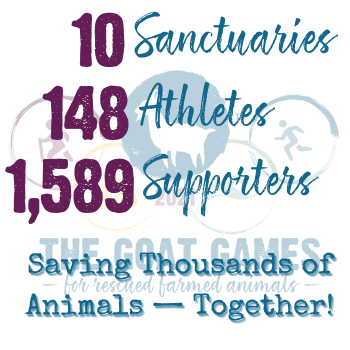 In mid-August, GFAS and Accredited Catskill Animal Sanctuary cohosted the Goat Games 2021 – a virtual fundraising event in which athletes could do any activity of their choice to raise money for a sanctuary team. Ten GFAS certified farm sanctuaries participated, supported by nearly 150 athletes. The event was championed by no other than vegan Olympian Dotsie Bausch, who cycled to benefit the animals. A generous donor matched all donations the last day of the event, adding a whopping $60k to the cause.
In mid-August, GFAS and Accredited Catskill Animal Sanctuary cohosted the Goat Games 2021 – a virtual fundraising event in which athletes could do any activity of their choice to raise money for a sanctuary team. Ten GFAS certified farm sanctuaries participated, supported by nearly 150 athletes. The event was championed by no other than vegan Olympian Dotsie Bausch, who cycled to benefit the animals. A generous donor matched all donations the last day of the event, adding a whopping $60k to the cause.
We are so proud to work alongside the amazing sanctuaries who made this event all it was:
Little Bear Sanctuary
Piedmont Farm Animal Refuge
Indraloka Animal Sanctuary
Farmaste Animal Sanctuary
Wildwood Farm Sanctuary and Preserve
Heartwood Haven
Pasado’s Safe Haven
Barn Sanctuary
Kindred Spirits Sanctuary
Lastly, an enormous THANK YOU to Carole Noon Award Winner Kathy Stevens and her entire team at Catskill Animal Sanctuary for their tireless efforts to make this event a success. Your leadership and generosity continue to inspire us.
Giving Day for Apes: Early Giving Has Begun!
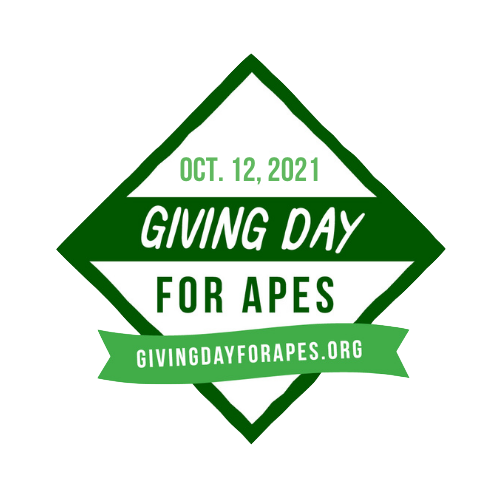 We’re so excited to be presenting another year of Giving Day for Apes, as part of our mission to help sanctuaries help animals! This year, you have a chance to help orangutans in Indonesia, gibbons in Vietnam, gorillas in Cameroon, chimpanzees in the U.S., and so many more at sanctuaries and rescue centers in more than 15 countries in North America, Africa, and Asia.
We’re so excited to be presenting another year of Giving Day for Apes, as part of our mission to help sanctuaries help animals! This year, you have a chance to help orangutans in Indonesia, gibbons in Vietnam, gorillas in Cameroon, chimpanzees in the U.S., and so many more at sanctuaries and rescue centers in more than 15 countries in North America, Africa, and Asia.
Since its beginning in 2014, Giving Day for Apes has grown into a global movement that has raised and awarded a total of more than $3.1 million to sanctuaries and rescue centers caring for apes. It also serves as a platform to raise awareness of the plight of apes: threatened with extinction in the wild as a result of deforestation, poaching, and other causes, and victims of exploitation in research, entertainment, and the exotic animal trade. In these continuing times of uncertainty, apes need our protection more than ever.
Giving Day for Apes is on October 12th, but early giving has already begun – and each dollar donated from now until Giving Day will help sanctuaries to compete for $60,000 in prizes! Visit www.givingdayforapes.org. It’s easy to make a donation, or even to create your own fundraiser page for one of the participating organizations. So please spread the word, and let’s show apes our support!
Submit Your Best Enrichment Tips – GFAS Online Forums
Does your sanctuary have a great boredom buster for big cats or a delicious edible enrichment item for equines? Post your favorite enrichment tips (for any species!) in the GFAS Peer-to-Peer online forums. We’ll choose the best ideas to feature in an upcoming “Pro-Tips” newsletter feature. To register for, or to access the online forums, visit the Peer to Peer page on our website.
On that note…we are in the process of updating the GFAS Peer-to-Peer online forums and would like to hear from you about what you would like us to include to make it a more valuable resource for you. Please take a moment to respond to our short survey.
GFAS Going Strong in Costa Rica!
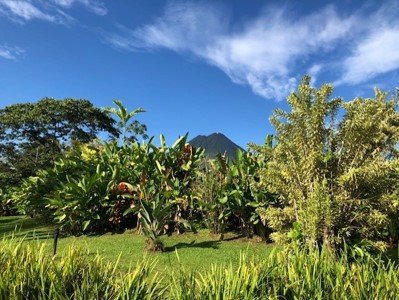
GFAS Executive Director, Valerie Taylor and Program Director for the Americas, Kristin Leppert, recently traveled to several Costa Rican provinces to visit wildlife rescue and rehabilitation organizations interested in pursuing GFAS Accreditation. The team was excited to engage with several enthusiastic groups embracing GFAS ethics and standards. Additionally, the pair met with wildlife officials from the Ministry of Environment and Energy (MINAE), the agency that creates wildlife laws and regulations in Costa Rica and the National System of Conservation Areas (SINAC) a division of MINAE, charged with implementation of the regulations.
The accreditation program in Costa Rica is made possible through GFAS’ long-time partnership with Humane Society International–Latin America (HSI-LA). In 2015, HSI-LA brought GFAS and MINAE together to create and pass a regulation requiring official wildlife rescue centers operating in Costa Rica, achieve GFAS Accreditation. An effort—years in the making—to support and distinguish rescue organizations committed to meeting higher standards. HSI-LA continues to provide invaluable expertise and resources to GFAS’ accreditation program throughout Central America. GFAS Accredited groups include, ARCAS Wildlife Rescue Center in Guatemala, Rescate Wildlife and Centro de Rescate Las Pumas in Costa Rica. We look forward to welcoming more organizations from the region into GFAS!
Wildlife protection efforts are critical in Costa Rica as this small country contains 5% of the world’s biodiversity, numerous threatened and endangered species and a massive wildlife trafficking problem. Despite its many challenges, Costa Rica is pushing forward to protect the country’s celebrated and treasured wildlife for generations to come. GFAS is proud to stand alongside, and in support of, the army of people dedicated to this effort.
Making Global Connections: Webinar on IUCN Guidelines
On August 25th, GFAS presented the webinar “Beyond Selfies: The IUCN Guidelines for Responsible Images of Non-Human Primates.” A panel of international experts was led Dr. Sian Waters, the lead author of these guidelines, who discussed why it is so important for those who care for primates and other wildlife to consider the impact of images showing direct contact with animals, and how such images, when taken out of context, can fuel the illegal pet trade.
Noelle Almrud, Director of accredited Cleveland Amory Black Beauty Ranch, discussed not only her sanctuary’s policies for the use of images, but also those of the North American Primate Sanctuary Alliance (NAPSA) and the Big Cat Sanctuary Alliance, of which Black Beauty Ranch is a member. Dave Du Toit, founder of accredited Vervet Monkey Foundation, spoke of his sanctuary’s experiences and the importance of distinguishing ethical practices from those offered by less reputable facilities. Each of our speakers shared their thoughts and perspectives on how sanctuaries can be part of the solution to ending the portrayal of wildlife-human interactions.
The webinar’s attendees included sanctuary personnel, scientists, scholars, and other interested individuals from 15 countries including Costa Rica, Malaysia, the UK, and the US. In addition to a lively question and answer session, attendees shared their own comments and experiences in the online chat throughout the webinar.
At GFAS, we strive to bring organizations together across continents to learn from each other about best practices in the care of captive animals, and we plan to offer more webinars in the coming months on topics of global interest.
If you would like to watch a recording of this webinar, you can view that here.
Highlights from the Third Published Report of the Equine Welfare Data Collective (EWDC) for the United States
Current data from the Third Report suggests that the number of equine welfare organizations in the United States may be increasing, and this may suggest that our capacity to help at-risk equines is also increasing!
As a reminder, the Equine Welfare Data Collective is a collaborative effort of several interested parties, to accumulate, analyze and report data so we can better understand and help the at-risk equine population in the United States. This newly published report is the first report of the three to cover a full year (2019), and while still reporting important foundation metrics of intakes and outcomes, this report has also added less traditional metrics such as safety net services. The initial reported data was for January 2018 to June 2018, second was from July 2018 to December 2018, so now we have two full years of valuable information.
Always of interest to GFAS’s mission in the United States is to understand more about the total population of equine rescues, sanctuaries, and transition centers to which we direct our efforts. While the benefits of GFAS certification are many, one of the most important objectives of GFAS Verification and Accreditation is to promote and improve an organization’s sustainability and decrease the likelihood of organizational collapse. The more equine welfare organizations succeed, large or small, the more capacity we have to provide quality care for these deserving animals. The GFAS Standards (Equine-standards-2020.pdf (sanctuaryfederation.org) build in protections for nonprofits through creating succession/contingency plans, personnel and operational manuals; helping organizations to secure appropriate insurance coverages; and keeping charities financially fit by requiring long-term strategic/financial plans, budgets, and strategies to save and maintain financial reserves.
For each of the three published reports, the EWDC compiles a database of all 501(c)3 nonprofit organizations within the United States and Puerto Rico that take custody of at-risk equines. The list is created using the publicly available IRS Tax Exempt Organization Search, web searches, social media groups and leads from partner organizations. All organizations identified for the total database are confirmed using 990s, EIN numbers and Letters of Determination.
The initial total equine welfare organizations reported by the EWDC for 2018 was 917. The recent report for 2019, estimates the baseline total population of equine welfare organizations to be 988. The third published report is filled with interesting information. For example, more than 75% of equine organizations have less than 50 animals and 11% of the national total have less than 10 animals. Also on a national basis, 40% provide adoption services only, 17% provide sanctuary services only, and 39% provide both rescue and sanctuary services. Grouped together, more than 56% of equine welfare organizations in the United States provide some lifelong care for equines.
Another interesting estimate from the report indicates that only 33% of the equine welfare organizations own the property upon which they are located. Nearly 20% are located on leased land not owned by the founder or related party and 29% are leased from the founder. GFAS Standard G-2 states that if a sanctuary/rescue does not own their property location they should have a valid written use agreement (lease) to protect the animals in their care. GFAS can help organizations develop an appropriate lease that will provide protections for the animals and the organization should the lease be unexpectantly terminated. GFAS will also help organizations develop lease contingency plans with steps needed for an organization to relocate or transfer their animals or dissolve with the least amount of negative impact. For organizations located on property owned by the founder, both succession plans and lease contingency plans become very important.
To read this valuable report in full, please go to this link EWDC REPORTS – United Horse Coalition.
Chimpanzees Flocking to Florida!
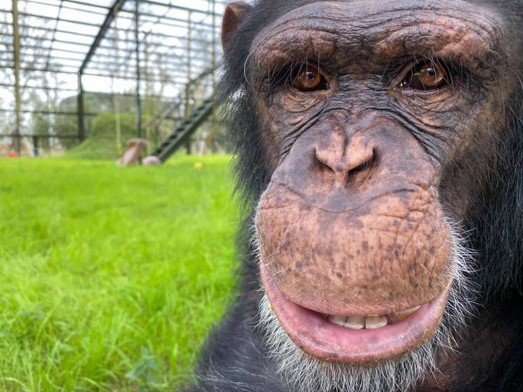
The Center for Great Apes (CGA) has been in a constant state of construction as the organization expands to serve more chimpanzees in need of appropriate and lifelong care. When Patti Ragan first founded CGA in 1993, the sanctuary location in Wauchula, Florida was 15 acres, but now 37 chimps and 27 orangutans later, it has grown to 100 acres. Over the years, CGA has continuously pushed their limits to offer a permanent and enriching home where all residents are guaranteed a lifetime of compassionate care in a beautiful and private setting.
Tammy, Candy, Connor, Kerry, Mikayla and Crystal are the latest chimpanzees to take up residency at CGA. They can now spend their days running, climbing, exploring the elevated chute trails and swinging on rope vines across their brand new three-story domed enclosures. The chimpanzees may never know it, but they have some relatives close by in other parts of the sanctuary. The six chimps were moved under court order to CGA from a Missouri facility where several current CGA residents were born years ago before being forced into entertainment or private ownership.
CGA has also agreed to take in a group of chimpanzees dubbed the “Sunshine Seven” from the closed, Wildlife Waystation in California as soon as their enclosures are completed and weather permits the transport. These chimpanzees are in for a big cross-country adventure on the way to a wonderful new home, a true sanctuary, at GFAS Accredited, Center for Great Apes. To learn more about Center for Great Apes and their work to provide sanctuary for orangutans and chimpanzees rescued from entertainment, research, and the exotic pet trade, please visit: www.centerforgreatapes.org
Animal Heroes: an inside look at the first GFAS certified farm sanctuary in South America
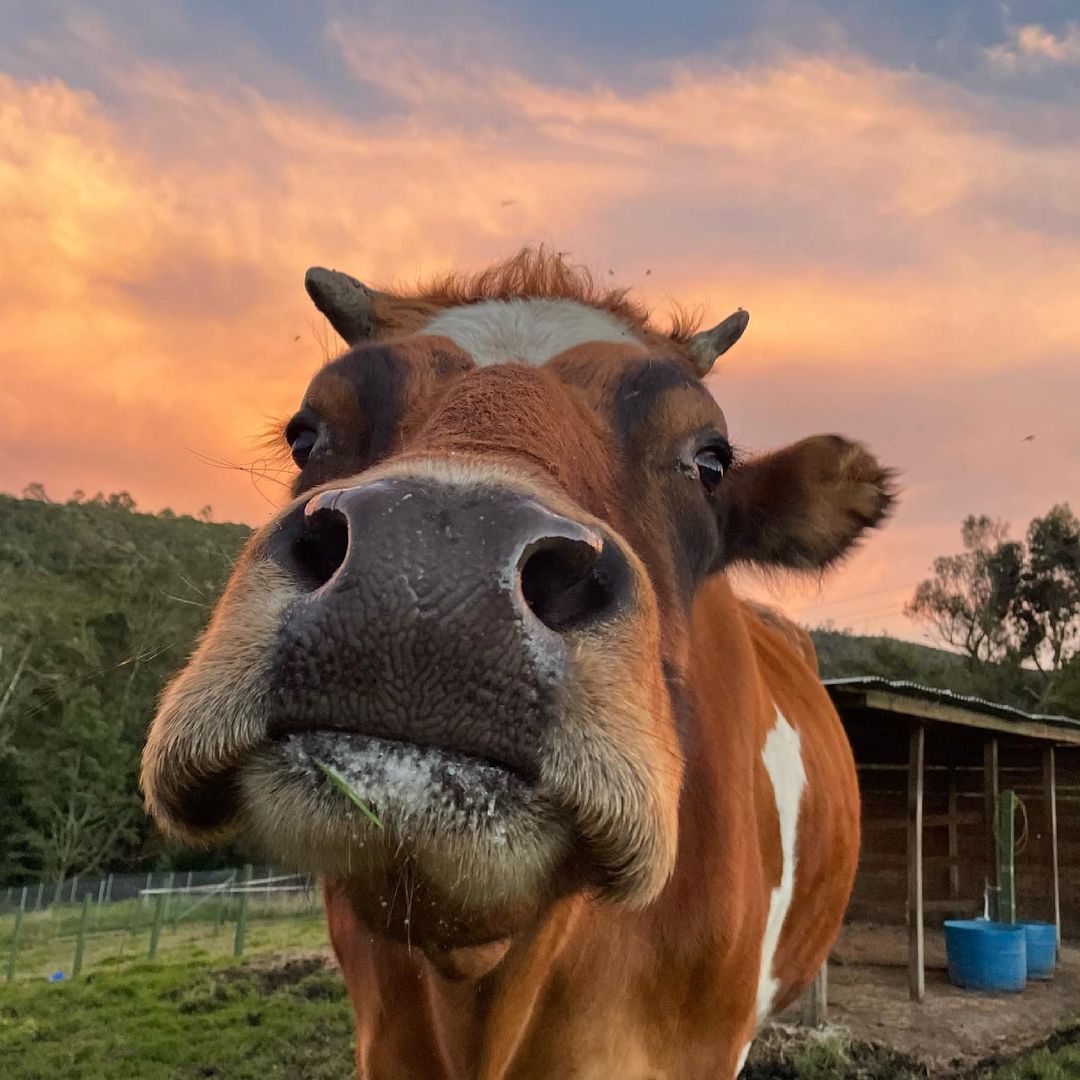 In July 2020, amidst a global pandemic, Juliana’s Animal Sanctuary became the first GFAS certified farm sanctuary in South America. As the only animal sanctuary in Colombia, Juliana’s Sanctuary faces difficult odds, at a cultural and political level. And yet, Juliana Castañeda Turner, Founder and Director of Juliana’s Animal Sanctuary, displays the tenacity and heroism she so admires in her residents. We interviewed her to see what it’s really like to pioneer the sanctuary life on your own terms. Read the full interview here.
In July 2020, amidst a global pandemic, Juliana’s Animal Sanctuary became the first GFAS certified farm sanctuary in South America. As the only animal sanctuary in Colombia, Juliana’s Sanctuary faces difficult odds, at a cultural and political level. And yet, Juliana Castañeda Turner, Founder and Director of Juliana’s Animal Sanctuary, displays the tenacity and heroism she so admires in her residents. We interviewed her to see what it’s really like to pioneer the sanctuary life on your own terms. Read the full interview here.
Highlighting GFAS Verified Bear Valley Equine Rescue
in Sundre, Alberta Canada
 In 2015, Bear Valley Rescue was the first equine rescue or sanctuary to be certified by GFAS in Canada. This organization has been helping horses for almost 20 years and consistently has 160 equines in their care at a time. They are well known in the Canadian province of Alberta particularly their focus to help equines subjected to the pregnant mare urine industry and keeping equines out of auctions as auctions place them at high risk for going to slaughter. In Alberta, 80% to 90% of horses sold at auction are purchased by meat buyers. Bear Valley Rescue has a very successful adoption program but also has many permanent residents who live out their lives on their beautiful ranch.
In 2015, Bear Valley Rescue was the first equine rescue or sanctuary to be certified by GFAS in Canada. This organization has been helping horses for almost 20 years and consistently has 160 equines in their care at a time. They are well known in the Canadian province of Alberta particularly their focus to help equines subjected to the pregnant mare urine industry and keeping equines out of auctions as auctions place them at high risk for going to slaughter. In Alberta, 80% to 90% of horses sold at auction are purchased by meat buyers. Bear Valley Rescue has a very successful adoption program but also has many permanent residents who live out their lives on their beautiful ranch.
Founders, Mike and Kathy Bartley explained in a recent post that, “a lot of horses now come from owner surrenders, people having problems that need to surrender their horses.” The dedication of these two individuals and their team of volunteers is undeniable. As they have said, “…we do what we do because we are passionate about these animals and feel they all deserve a humane and peaceful existence, no matter what their past or future potential.”
On their social media, Bear Valley Rescue has drawn attention to the fact that the Canadian federal government has recently called an election for September 20, 2021. For the first time, animal welfare and animal protection are on the election platforms for all major parties. This is a significant opportunity for Canadians to advance and elevate animal welfare. Please visit Bear Valley Rescue at https://bearvalleyab.org/.
New Certifications and Renewals
Over the past month, GFAS has certified two new groups, renewed three GFAS groups and transitioned one group from Verified to Accredited Status! Congratulations to all these organizations!
New Certifications
Thoroughbred Retirement Foundation – Saratoga Summer Farm, New York
Thoroughbred Retirement Foundation –
Wallkill Correctional Farm, New York
Transition from Verified to Accredited
Horse Haven of Tennessee, Tennessee
Renewals
Beauty’s Haven Farm and Equine Rescue, Florida
California Coastal Horse Rescue, California
Ryerss Farm for Aged Equine, Pennsylvania
